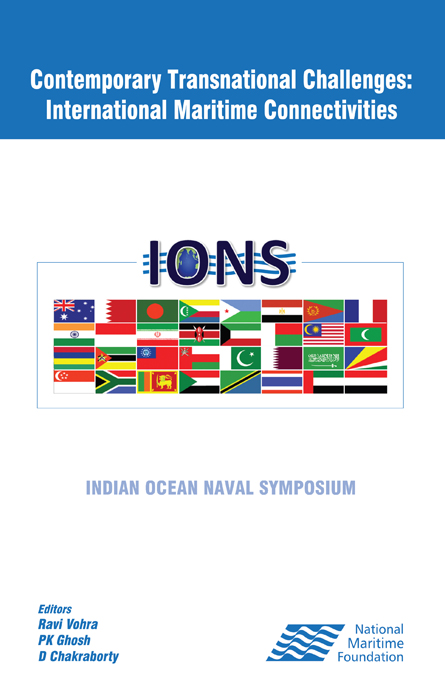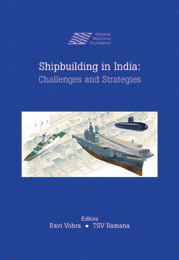Subjects
Recent View(s)
- Contemporary Transnational Challenges: International Maritime Connectivities
- Breaking Out of the Gree House: Indian Leadership in Times of Environmental Change
- Unknown and Unsung: Indian Air Force in Sino-India War of 1962
- Journey of a Geologist in TATA Steel
- Advances in ICT and the Likely Nature of Warfare
- The Anatomy of an Indian General Election
- Scaling India-Japan Cooperation in Indo-Pacific and Beyond 2025: Corridors, Connectivity and Contours
- BOSE YA GANDHI: Kisne Dilayi Bharat Ko Azadi
- Special Offer <br>Buy 2 @ Rs 980 and Get 1 Free
- Nation Branding in Non-Western Societies: Projecting India as a ‘Civilisation State’
Contemporary Transnational Challenges: International Maritime Connectivities
Ravi Vohra, P K Ghosh & Devbrat Chakraborty
The Indian Ocean is the third largest of the world's oceanic divisions. The world's earliest civilisations in Mesopotamia, ancient Egypt, the Indian subcontinent, Persia and later in Southeast Asia, all developed around the Indian Ocean. Today, its littorals and hinterland comprise more than fifty nation-states and two-thirds of the world's known reserves of strategic raw materials while an estimated 40 per cent of the world's offshore oil production comes from it. The Indian Ocean is appropriately called Ratnakara in ancient Sanskrit literature, which means, the creator of jewellery.
The contemporary maritime scenario is tempered, on the one hand, by regional geo-strategic interaction and imperatives and, on the other, by the now omnipresent forces of globalisation. It is within these extra-oceanic environmental parameters that the maritime security forces of the region have to operate.
All maritime forces have to deal with some very distinct and localised challenges. These inter alia include transnational maritime threats as also the management of large maritime zones with limited security resources.
To overcome these challenges there is clearly a need to synergise security efforts by adopting cooperative security strategies on a region-wide basis. Yet, in the Indian Ocean, a regional security architecture is lacking.
The seminar has attempted to examine all the said issues a priori and recommend suitable options for the region. The compilation of articles, and the recommendations flowing from the discussions, should provide sufficient basis for future dialogue and charting the way ahead!


 Political Science
Political Science


